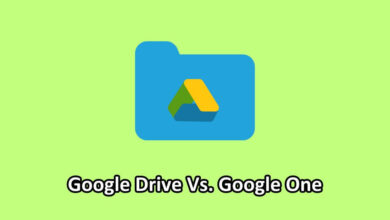OpenDNS Vs Cloudflare : What’s the Difference?
DNS (Domain Name System) services play a crucial role in the functioning of the internet, acting as the virtual phonebook that translates user-friendly domain names into IP addresses, enabling seamless web browsing. Understanding the significance of DNS services is essential for anyone looking to optimize their internet experience, whether for personal or business use.
In this comprehensive guide, I will delve into two leading DNS service providers, OpenDNS and CloudFlare, shedding light on their features, benefits, differences, and use cases. By the end, you will have a clear understanding of which service is best suited to your specific needs.
OpenDNS Vs. Cloudflare (A Comparison)
| OpenDNS | Cloudflare |
|---|---|
| OpenDNS, now part of Cisco, is a DNS (Domain Name System) service that offers advanced content filtering, web security, and DNS resolution services. | Cloudflare is an independent internet security and content delivery company that provides DNS services along with a global Anycast network to offer fast and secure DNS resolution. |
| OpenDNS is a part of Cisco, a major networking and IT company. | Cloudflare operates as an independent entity. |
| It offers advanced content filtering and web security features, making it popular for parental control and business use. | It focuses on providing speed and privacy without extensive content filtering. |
| OpenDNS values user privacy but may share data with Cisco for security analysis. | Cloudflare strongly emphasizes user privacy, committing not to sell or store user data. |
| It may rely on a smaller network for DNS resolution. | Cloudflare's use of a global Anycast network ensures fast and reliable DNS resolution by routing queries to the nearest data center |
| Open DNS primarily focuses on web security. | It includes built-in DDoS protection as part of its DNS service, offering added security against online threats. |
| Open DNS provides detailed reports and insights into the network's DNS traffic, valuable for network administrators. | Cloudflare offers reports and insights but may be less detailed compared to OpenDNS. |
What is OpenDNS?
OpenDNS, now part of Cisco, is a prominent DNS service provider that offers an enhanced and secure browsing experience. It provides an alternative to your default DNS server, allowing you to customize your internet’s DNS resolution process.
Key Features and Benefits of OpenDNS
OpenDNS boasts several key features and benefits, including:
- Security: OpenDNS provides protection against malware, phishing, and other internet threats. It blocks malicious websites, enhancing your online security.
- Content Filtering: Users can configure OpenDNS to block specific websites or types of content, making it ideal for parental controls and business web filtering.
- Performance: OpenDNS claims to improve internet speed by reducing DNS resolution time, resulting in faster loading of web pages.
- Reports and Insights: OpenDNS provides detailed reports on your network’s DNS traffic, offering valuable insights into your network’s activity.
What is CloudFlare?
CloudFlare is a renowned technology company that offers a range of internet services, including a high-performance and secure DNS service. CloudFlare’s DNS service is known as 1.1.1.1, and it aims to provide a faster and more private browsing experience.
Features and Advantages of Cloudflare DNS Services
Cloudflare’s DNS service offers several unique features and advantages, such as:
- Speed: CloudFlare’s 1.1.1.1 claims to be one of the fastest DNS services globally, reducing website load times for users.
- Privacy: With a commitment to user privacy, CloudFlare does not store or sell user data, making it an attractive option for those concerned about data privacy.
- Anycast Network: CloudFlare utilizes a global Anycast network, routing user requests to the nearest data center, further enhancing speed and reliability.
- Security: CloudFlare’s DNS service comes with built-in DDoS protection, safeguarding your online presence from potential threats.
Key Differences Between OpenDNS and CloudFlare
In the comparison between OpenDNS vs CloudFlare, few significant differences stand out:
- Content Filtering: OpenDNS offers advanced content filtering and web security features, making it a popular choice for parental control and business use, whereas CloudFlare focuses on speed and privacy.
- Privacy Practices: CloudFlare places a strong emphasis on user privacy, committing not to sell or store user data. OpenDNS also values user privacy but may share data with Cisco for security analysis.
- Global Anycast Network: CloudFlare’s use of a global Anycast network ensures fast and reliable DNS resolution by routing queries to the nearest data center, while OpenDNS may rely on a smaller network.
- Reporting and Insights: OpenDNS provides more detailed reports and insights into your network’s DNS traffic, making it a valuable tool for network administrators.
Use Cases
When Should You Use OpenDNS?
OpenDNS is an excellent choice when:
- You need robust content filtering for parental control or web security in a business environment.
- Detailed reporting and insights into DNS traffic are essential.
- You are comfortable with Cisco’s ownership and its implications.
When should you use CloudFlare?
Cloudflare’s DNS service is ideal when:
- Speed and privacy are your top priorities.
- You seek a DNS service that does not log or sell user data.
- DDoS protection is a crucial consideration for your online presence.
Conclusion
OpenDNS and CloudFlare, while both valuable DNS service providers, cater to different needs. OpenDNS excels in content filtering and reporting, while CloudFlare focuses on speed, privacy, and DDoS protection.
Choosing between OpenDNS and CloudFlare depends on your priorities. If content filtering and reporting are essential, OpenDNS is a strong choice. If speed, privacy, and DDoS protection are your priorities, CloudFlare is an excellent option.
Before making a decision, it’s crucial to evaluate your specific needs and priorities. Consider testing both services to determine which one aligns best with your internet usage. Additionally, research alternative DNS services to find the perfect fit for your requirements.
FAQs about OpenDNS vs. CloudFlare
What is the Main Difference Between OpenDNS and Cloudflare?
The main difference lies in their primary focus. OpenDNS emphasizes content filtering and detailed reporting, making it suitable for parental control and business web security. In contrast, Cloudflare prioritizes speed, privacy, and DDoS protection, offering a faster and more private browsing experience.
Is Cloudflare Better than OpenDNS?
Whether Cloudflare is better than OpenDNS depends on your specific needs. Cloudflare excels in speed, privacy, and DDoS protection. If these are your top priorities, Cloudflare may be the better choice. However, OpenDNS is superior in content filtering and reporting, making it ideal for parental control or business web security.
Is it OK to Use Cloudflare DNS?
Yes, using Cloudflare DNS (1.1.1.1) is generally a good choice. It offers faster DNS resolution, better privacy practices, and built-in DDoS protection. Cloudflare is a reliable and respected DNS service provider used by many to enhance their online experience.
Is OpenDNS Better?
OpenDNS is better for specific use cases. It excels in content filtering and detailed reporting, making it a strong choice for parental control and business web security. However, it may not be as fast as Cloudflare, and its focus on these features may not align with everyone’s needs.
Can you Use OpenDNS and CloudFlare Together?
While it’s technically possible to use OpenDNS and CloudFlare together, it may add complexity to your network configuration. It’s generally more practical to choose one DNS service that aligns with your primary needs.



